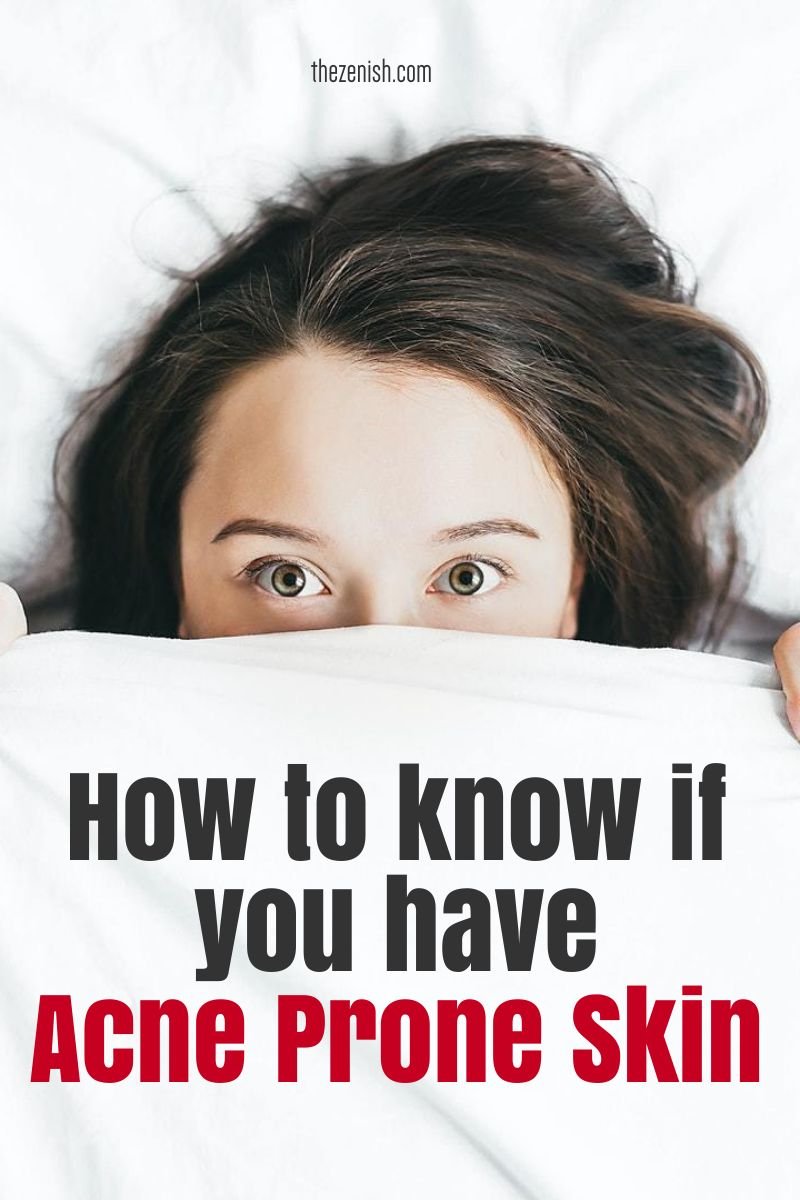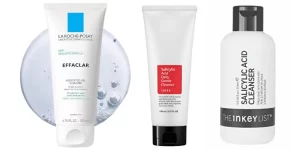
So, how do you know if you have acne-prone skin?
Acne is common and most people will get acne at some point.
Some people, however, are more prone to developing recurrent skin blemishes that never seem to go away, and will negatively affect their self-esteem and daily life.
One of the first steps, towards learning how to care for your skin, and what products to use, is identifying and understanding your skin type.
Knowing if you have acne-prone skin, will give you a better understanding of your skin’s underlying problems, a better idea of how to treat your breakouts, and achieve smoother, clearer skin.
| this post may contain affiliate links, which means if you purchase from one of these links, I may receive a small commission at no additional cost to you. |
What is Acne?
What Is Acne Prone Skin?
Acne (full name, Acne Vulgaris) is a non-contagious skin condition caused by inflamed and infected sebaceous glands.
Acne-prone skin refers to skin more likely to experience clogged pores, pimples, frequent breakouts, blemishes and scarring as a result.
But when it comes to acne there’s a whole spectrum of acne severity.
Your skin type and whether or not you have acne-prone skin are linked to genetics and hereditary. Even so, there are daily habits and environmental factors that can worsen acne, if you have acne-prone skin.
Keep in mind: Blemishes on your skin might not be acne. Rosacea can cause acne-like symptoms. If you’re unsure, ask your doctor.
You might also like
- 15 Tried-and-true ways to clear up embarrassing acne fast
- 11 Quick And Easy Homemade Face Masks For Acne
- Can acne-prone skin use oils? The answer may surprise you
- 8 exfoliating mistakes that age your skin
How do I know if I have acne-prone skin?
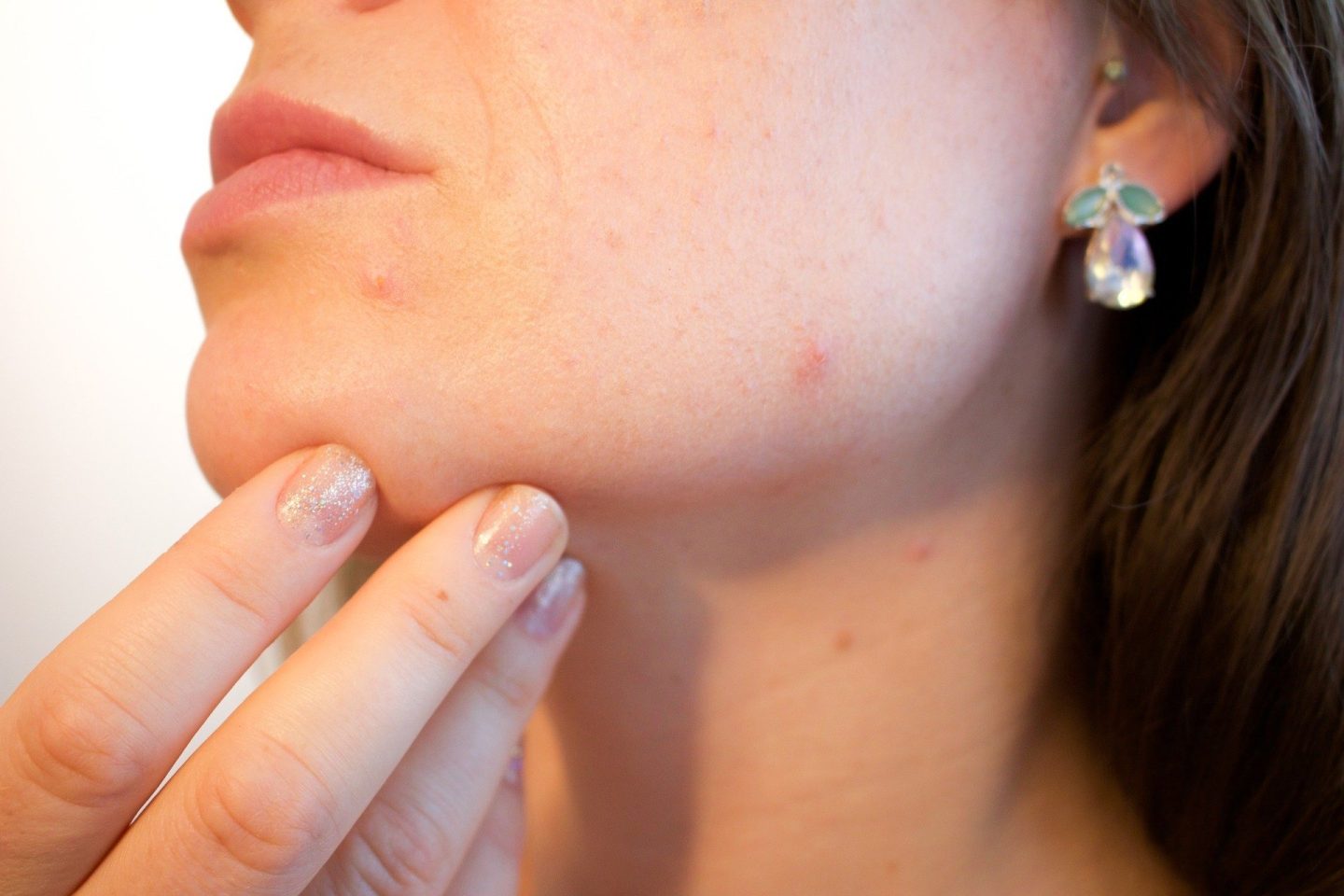
If you suffer from frequent breakouts, clogged pores, blemishes and acne scars that don’t seem to go away, you may have acne-prone skin.
Oily or dry skin can be prone to acne.
But acne doesn’t just affect your skin, it can also affect your quality of life. Having acne can cause stress and poor self-esteem.
And despite the belief that acne is a teen issue, it can and does affect people of all ages.
Symptoms
symptoms can vary depending on the severity of your condition and can appear on your back, chest, neck, shoulders, upper arms and buttocks.
- Whiteheads
- Blackheads
- Small red, tender bumps
- Pimples with pus at their tips
- Large, solid, painful lumps beneath the surface of the skin
- Painful, pus-filled lumps beneath the surface of the skin
Acne symptoms can be more than just blemishes. It can also be
- Low self-esteem:
- Depression
- Dark spots on the skin
- Scars
Causes
These key factors are likely to make some people more prone to acne than others:
- Excess oil production
- Hair follicles clogged by oil and dead skin cells
- Bacteria
- Excess activity of a type of hormone (androgens)
- Genetics
Your diet, stress, and smoking might also trigger and aggravate your acne and make the condition worse.
things to keep in mind
- Everyone gets acne. However, some people are more susceptible to getting breakouts.
- It’s not your fault you have acne-prone skin, but oftentimes there are changes you can make to prevent frequent breakouts and reduce scarring.
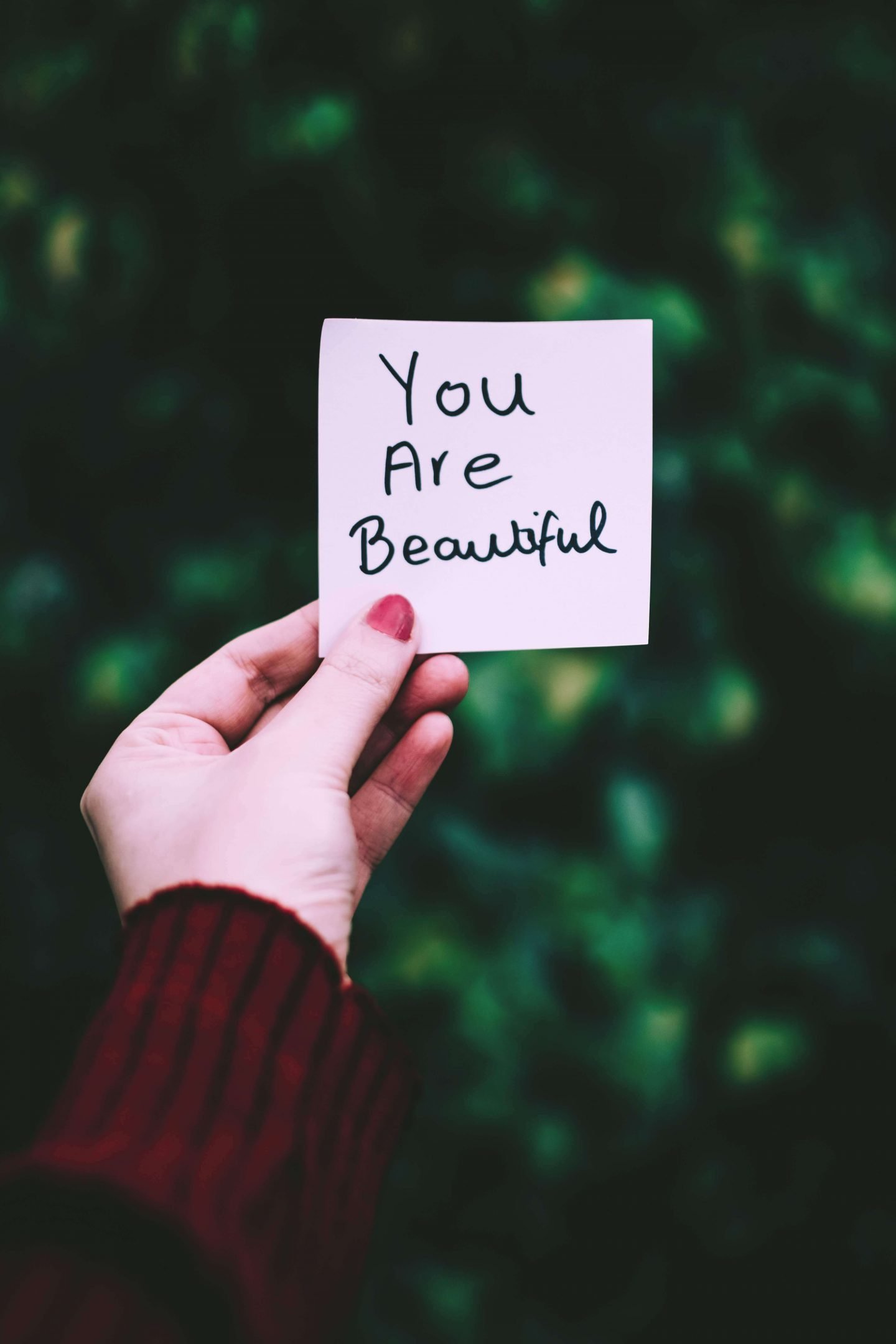
What to do if you have acne prone skin
9 skincare tips from dermatologists.
Tip 1. Wash Your Face Daily
The most important rule is to wash your face!
If you’re already doing this then great! You’re on the right track.
This step is crucial because washing your face at least twice a day is one of the best ways to keep breakouts away.
Tip: keep face wipes on your nightstand for those times when you’re unable to do a proper wash. This way your skin will still get clean! And remember to rinse with lukewarm water.
Tip 2. Use the Right products
For your skincare and makeup products to be most effective, you have to pay attention to your skin’s needs and choose the right ingredients.
For example, If you have oily skin, choosing products with salicylic acid, benzoyl peroxide, or glycolic acid will do your skin the most good.
If you have sensitive skin, choose products with lactic acid or hydrating ingredients like glycerin.
For acne-prone skin, choose acne-fighting ingredients like salicylic acid, clay, benzoyl peroxide or retinol.
Always remember to choose and use products specifically formulated to treat acne, because they’re better suited to help you minimize your breakouts.
Tip 3. Moisturize
Don’t be afraid to use moisturizer. It won’t make your acne worse.
Using a moisturizer specifically formulated to fight acne can only improve your skin. If your skin is dehydrated, your oil glands will overproduce oil and make your acne worse.
However, hydrating your skin with moisturizer can re-balance oil glands and help control acne and improve healing.
Tip: when looking for a moisturizer, look for one of these descriptions on the box
- Oil-free
- Non-comedogenic
- Won’t clog pores
When you see one of these descriptions, it means the moisturizer is unlikely to cause breakouts.
Tip 4. Be gentle with your skin.
Whenever possible use a gentle touch and stay away from harsh products that could irritate your skin.
Astringents, toners and exfoliants can irritate and harm acne-prone skin so try to stay away or use gentler versions.
Red irritated skin often makes acne look worse so be gentle with your skin to avoid adding additional trauma to any existing breakouts.
Tip 5. Don’t Over Exfoliate
Scrubbing your face with grainy cleansers and exfoliators will only do more harm than good, so don’t.
When you exfoliate acne-prone skin too often, it can damage healthy skin cells and create open wounds, leading to a higher risk for scarring.
Scrubbing can also cause redness, inflammation, and irritation.
Physical exfoliation should be done with caution, and not more than 2-3 times a week maximum because it can make acne worse so avoid the temptation.
Tip 6. Let your skin heal naturally.
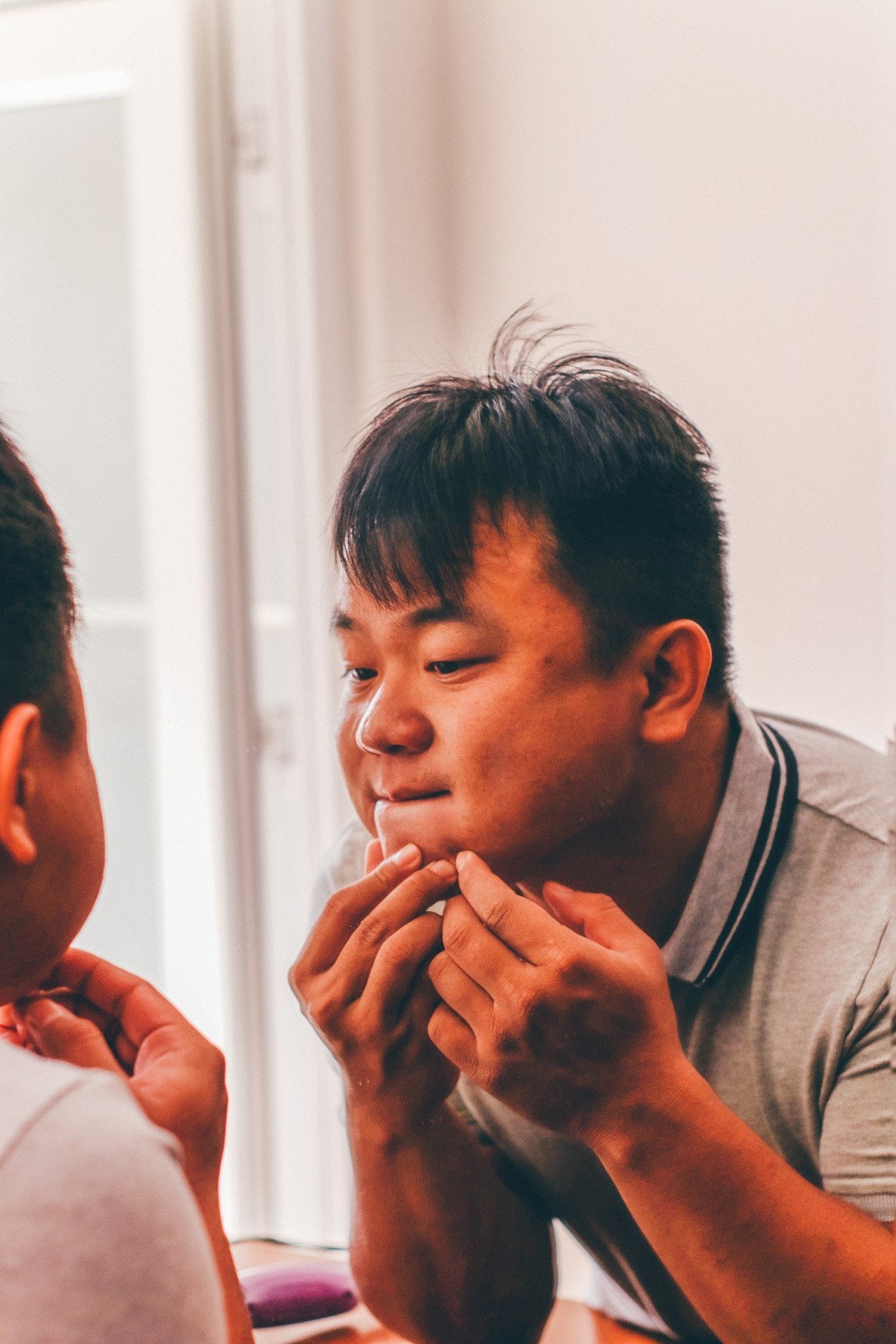
Picking, popping or squeezing your acne, will only prolong the healing process and increase your risk of getting severe acne scars.
If you really must pop, pick or squeeze your acne, there are safe ways to do this, however, so consult your dermatologist for direction.
Tip 7. Try to Keep Your Hands Off Your Face
We all love to touch our faces.
But one of the most basic and helpful tips for getting rid of acne is simply to keep your hands to yourself.
Your hands aren’t always clean, and squeezing, popping or picking can cause acne to spread or lead to infection, and embarrassing scars.
So try your best to keep your hands off your face!
Tip 8. Use Sunscreen that Doesn’t Clog Pores
We should all wear sunscreen, acne-prone skin or not because unfortunately, some sunscreens can trigger breakouts.
So when choosing a sunscreen, look for ones that are oil-free and non-comedogenic. These formulas won’t clog pores.
Tip 9. Consult a dermatologist if:
- Your acne makes you feel shy and embarrassed and affect your self-esteem and daily routine.
- Everything you’ve tried hasn’t worked.
- Your acne is leaving scars or darkening your skin. Getting help for and treating acne before cysts and nodules appear can prevent scars.
Final Thoughts
Having skin that’s more likely to experience clogged pores, frequent breakouts, blemishes and scars are a few ways to know if you have acne-prone skin. This condition can be embarrassing and isolating but it’s not your fault.
While there are environmental and lifestyle factors that can worsen your acne, your breakouts could very well be genetic.
Tips like cleansing your face daily, keeping your hands away from your face, using products and ingredients that target acne and knowing when to consult a specialist can help to heal or keep breakouts and your acne-prone skin under control.
If this was helpful then don’t forget to share!
